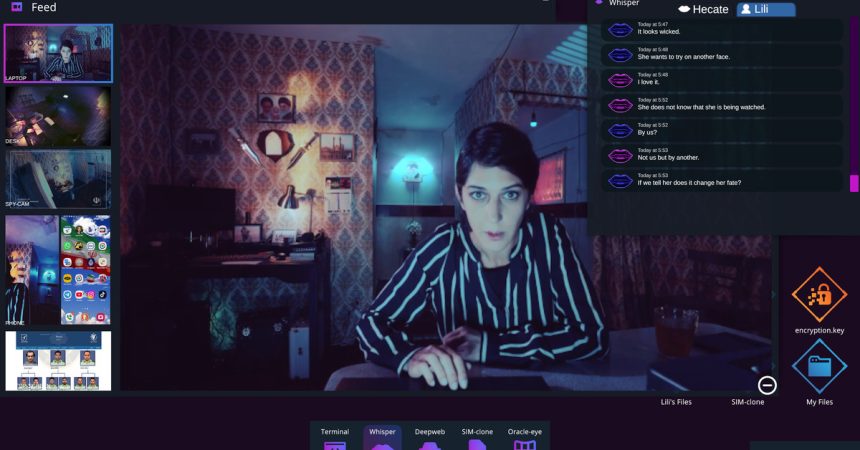Shakespeare’s timeless tragedy, Macbeth, is poised for a radical transformation, stepping off the stage and onto the screen as an interactive video game titled “Lili.” This reimagining, spearheaded by the prestigious Royal Shakespeare Company in collaboration with iNK Stories, a New York-based indie studio known for its innovative narrative-driven games like “1979 Revolution: Black Friday,” promises to immerse players in a chilling neo-noir world inspired by the themes of ambition, power, and moral decay that permeate the original play.
“Lili” departs significantly from the traditional setting of medieval Scotland, transporting the narrative to a contemporary, stylized version of Iran, where a modern-day Lady Macbeth, played by Zar Amir, navigates a world dominated by surveillance and authoritarianism. This shift in context adds a fresh layer of complexity to the already intricate power dynamics inherent in the story, offering a contemporary lens through which to explore the enduring themes of the play. The oppressive atmosphere of modern Iran serves as a potent backdrop, mirroring the sense of confinement and paranoia that ultimately drives Macbeth and Lady Macbeth to their tragic downfall.
The game adopts the innovative “screen life” format, placing players directly into the digital world of Lady Macbeth. Access to her personal devices – texts, emails, social media, and potentially surveillance footage – becomes the primary mode of interaction. This mechanic offers a uniquely intimate perspective on the character’s psyche, allowing players to witness her descent into darkness through the fragmented and often deceptive lens of modern technology. By piecing together the digital breadcrumbs scattered across these devices, players will unravel the intricate web of manipulation, secrets, and ultimately, the devastating consequences of unchecked ambition.
This approach echoes the narrative style popularized by Sam Barlow’s interactive thrillers, such as “Her Story” and “Telling Lies,” where the story unfolds through fragmented video clips and digital interactions, requiring players to actively engage in piecing together the narrative. The game promises a blend of live-action cinematic sequences seamlessly integrated within the interactive game format, creating a captivating and immersive experience that blurs the lines between film and video game. Players are not just passive observers; they become active participants in Lady Macbeth’s story, making choices that will directly influence her fate, potentially leading to multiple outcomes and interpretations of her tragic trajectory.
The choice of Iran as the setting not only adds a layer of contemporary relevance but also offers a rich tapestry of cultural and political nuances to explore. The game’s creators have the opportunity to delve into themes of social control, political intrigue, and the struggle for power within a complex and often misunderstood geopolitical landscape. This provides a fertile ground for exploring the timeless themes of ambition and corruption in a way that resonates with modern audiences. The surveillance state backdrop also creates an interesting parallel with the ever-present sense of being watched and judged that pervades Shakespeare’s original play, further intensifying the psychological pressure on the characters.
Scheduled for release in late 2025, “Lili” represents a bold and ambitious reimagining of one of Shakespeare’s most iconic tragedies. By transposing the narrative to a modern setting and employing innovative interactive storytelling techniques, the game promises to engage a new generation of players with the enduring power of Shakespeare’s work, while simultaneously offering a fresh and compelling exploration of the complex character of Lady Macbeth. The game’s development will be closely watched by both the gaming community and Shakespeare enthusiasts, eager to see how this innovative project bridges the gap between classical literature and the ever-evolving world of interactive entertainment. The fusion of Shakespearean drama with interactive gameplay and the screen life format presents a unique opportunity to explore the psychological depths of Lady Macbeth in a way never before possible, potentially offering new insights into her motivations and the tragic consequences of her choices.



